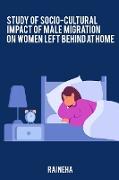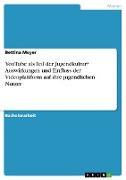- Start
- Women in Homeland Study of Socio Cultural Impact of Male Migration on Left Behind Women in Junpur District
Women in Homeland Study of Socio Cultural Impact of Male Migration on Left Behind Women in Junpur District
Angebote / Angebote:
Introduction ¿Ke ho jayihen Hazipur, ke ho jayihen Patna, Ke ho Jayihen Kalakatawa noukariya E Birana'1 (O Husband! Some will go to Hazipur, and some will Patna and some will go Calcutta for job.) (A wife asks her husband that some will migrate to Hazipur and some will Patna and Calcutta which reflects that Bhojpuri folk tradition acquaint us with the conditions of left-behind women and also the one who actually migrate i.e. male member of the family migrate to cities leaving behind their wives at village). In ancient times people were engaged in trade and agricultural activities so they either migrated to far off places for trade or stayed back in their villages and practiced agriculture. Davis (1951) pointed out that the population of India and Pakistan are relatively immobile due to the dominance of agricultural activities, joint family and caste system, but the outbreak of famines and droughts led to the gradual migration of people (Chattopadhyay, 1987) and now it appears to have become the part of life when people want to have a better life in terms of their economic and social status. Since colonial times agricultural farmers and laborers from Bhojpuri region migrated to Assam and Calcutta to work in tea gardens and jute mills and earn their livelihood. Calcutta occupied an important place amongst all the hotspots of places where people could earn. At that time Calcutta was known as 'Bidesh' amongst the Bhojpuri folks2 . This region has historical evidence of left-behind women as male members were not interested in taking their female counterpart with them due to strange place and economic uncertainty of destination which could be spotted in colonial history (Laurence, 1994). After independence, gradually migration became an integral part of rural lives due to the economic necessities. In the beginning, migration discourse emphasized on its economic importance but later the debate shifted towards the other important aspects due to its multifarious attributes. Migration always includes connotation of ¿changes¿ which brings significant alterations in individual's life. Scholars started considering it as an important factor of socio-cultural transformation as well as economic development. It is believed that there is.
Folgt in ca. 10 Arbeitstagen




